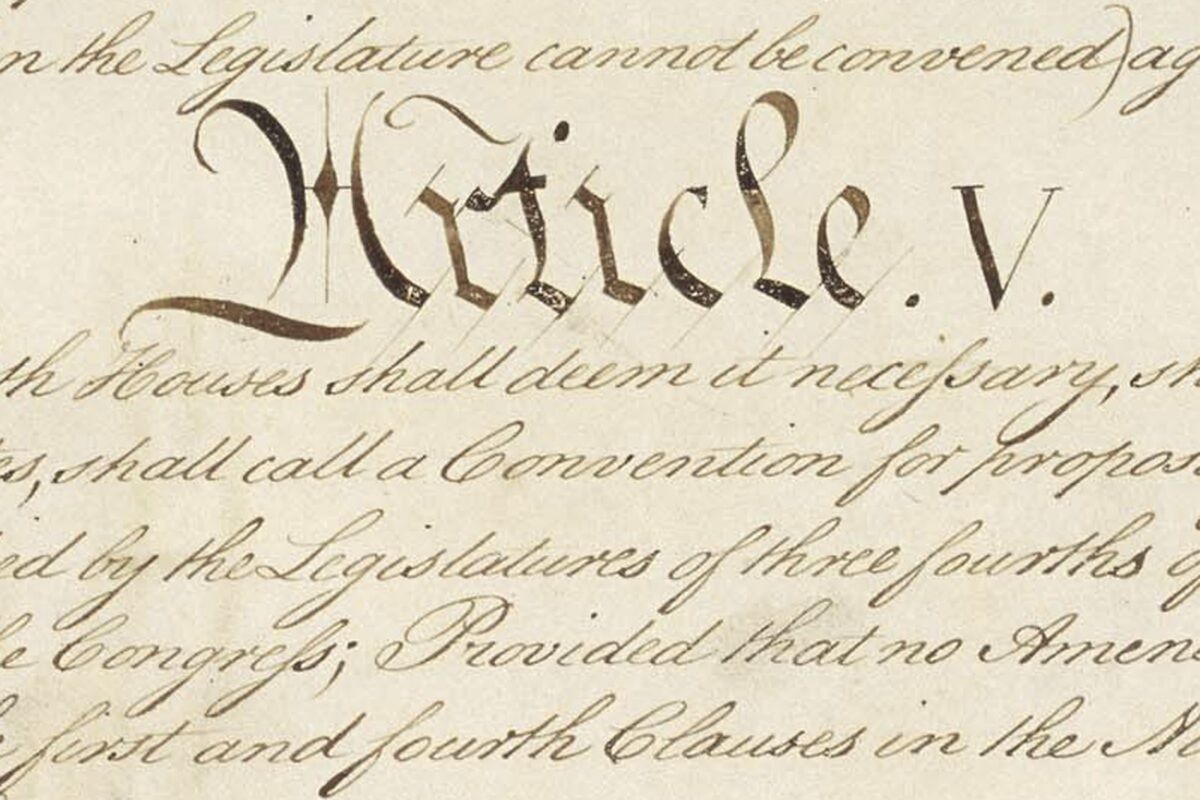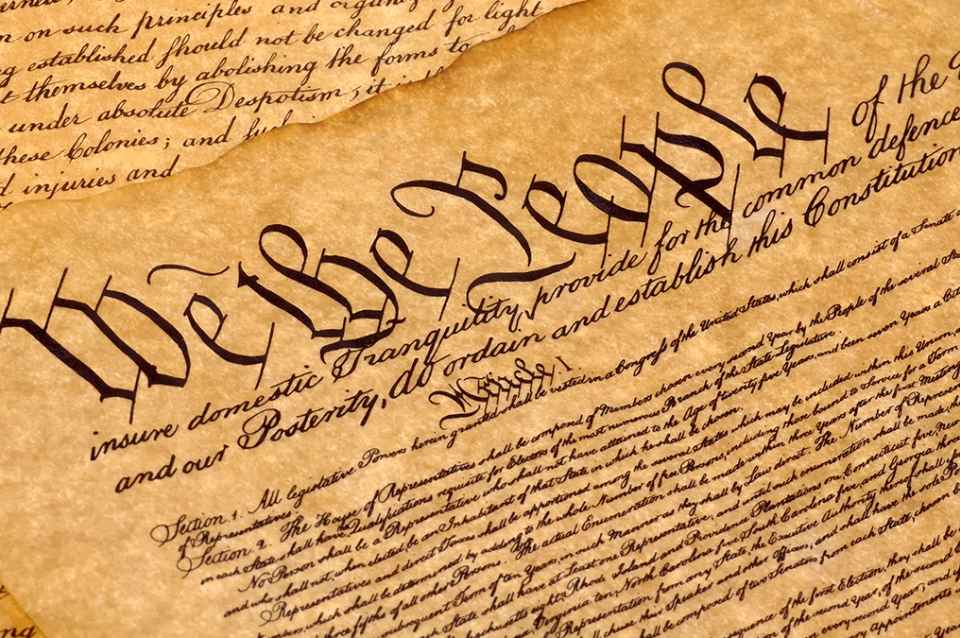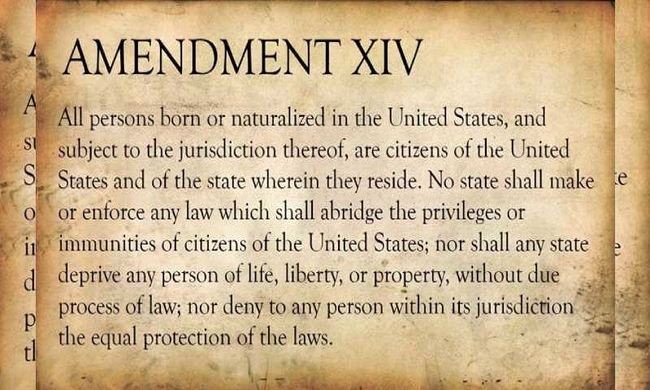Multiple Perspectives
Reactions in Mainstream Media
Marshall B. Woodworth (1898) argued that the United States had the right to change and apply rules of citizenship as its sovereign governing body desired. As such, a nation wouldn't have to conform to global citizenship laws.
“The error the dissent apparently falls into is that it does not recognize that the United States, as a sovereign power, has the right to adopt any rule of citizenship it may see fit and that the rule of international law does not furnish [by its own force] the sole and exclusive test of citizenship of the United States.”
~ Attorney Marshall B. Woodworth (1898)
“[The Wong Kim Ark ruling] may have a wider effect upon the question of citizenship than the public supposes… it may become necessary… to amend the Federal Constitution and definitely limit citizenship.”
~ San Francisco Chronicle (3/30/1898)
San Francisco Chronicle (1898) suggested that the ruling may lead to citizenship and voting rights to more minorities than just the Chinese. This represented concerns from the common white American, including the fear of losing voting power to a potentially uneducated group with different values.
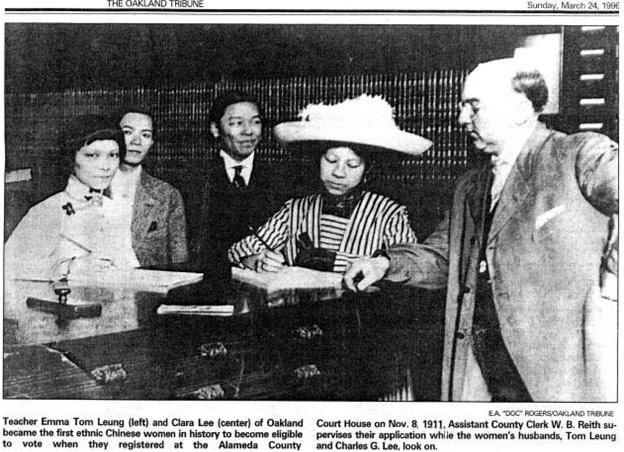
Clara Chan Lee and Emma Tom Leung, registering to vote, Alameda County Courthouse, November 8, 1911
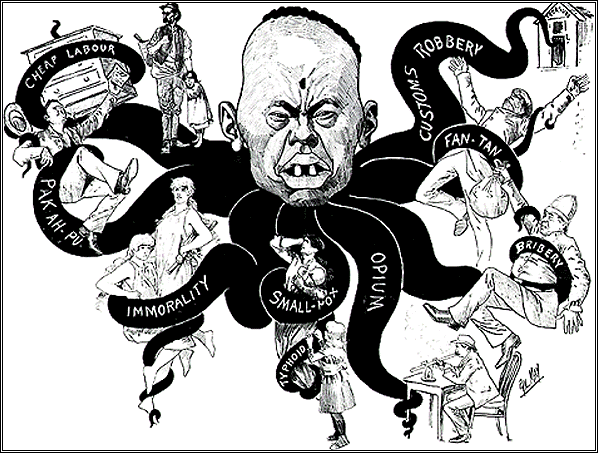
‘The Mongolian Octopus’ by Phillip May, The Bulletin, August 21, 1886
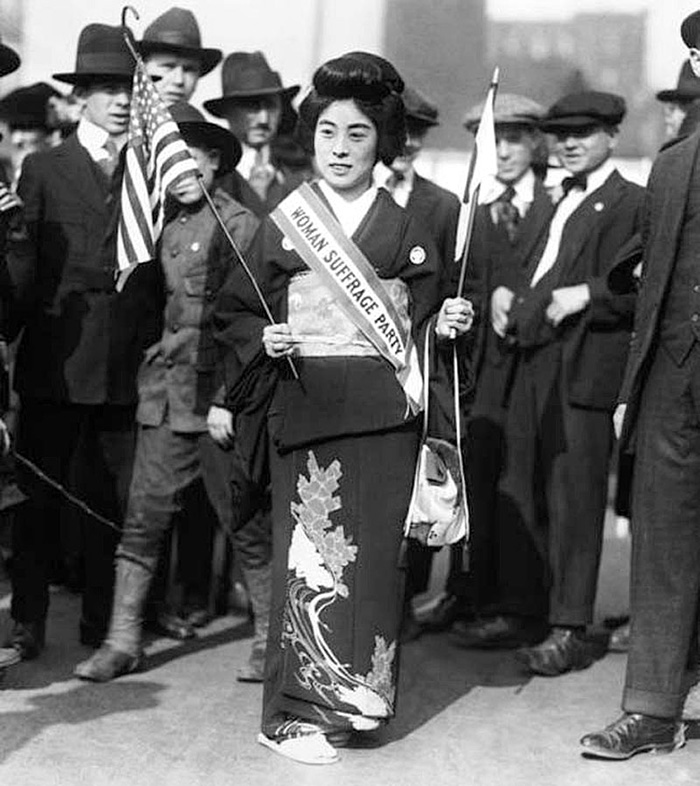
Japanese suffragist, Komako Kimura, New York, October 23, 1917
Present Arguments
Cornell Law discusses the issue of jus sanguinis- a principle of law where citizenship is determined by the nationality or ethnicity of the parents.
“[The question was] not whether [Wong Kim Ark] was born in the U.S. or subject to the jurisdiction thereof… but whether his or her parents have the ability, under U.S, or foreign law, statutory or treaty-based, to become citizens of the U.S. themselves.”
~ Cornell Law (2009)
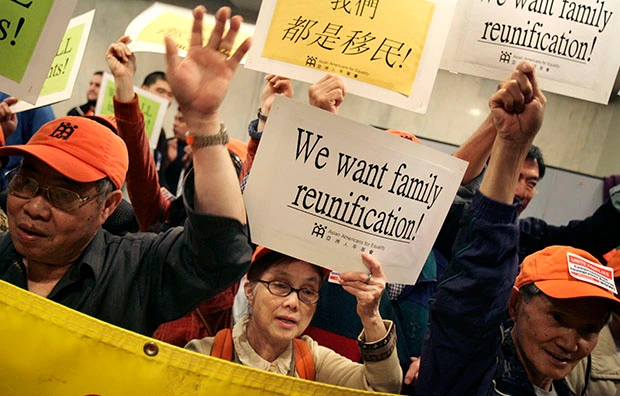
Asian American protestors, immigration systems and family reunification, 2013
Cato Institute’s analysis regards discrepancies in current law proposals to change the Citizenship Clause.
“Current U.S. immigration law does not provide any lawful immigration status—other than U.S. citizenship—to babies born in the United States. Thus, [changing the Citizenship Clause would cause] the children who are henceforth to be denied birthright citizenship [and] immediately become unauthorized immigrants at the moment of their birth; they do not qualify for Birthright Citizenship green cards, and they cannot naturalize.”
~ Cato Journal (2012)
Article cover, "DIFFERENCE BETWEEN A GREEN CARD AND CITIZENSHIP," green card and U.S. citizenship differences, 2017
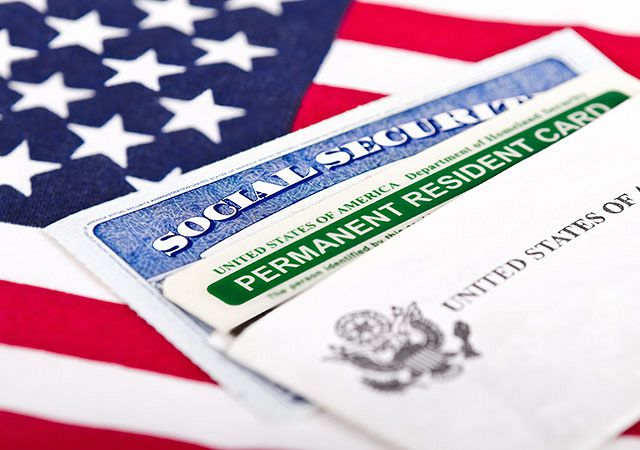
Cristina Rodriguez, New York University School of Law professor, ties the outcome of the Wong Kim Ark case to American ideals. She highlights the American Dream, that one’s parents’ legal status doesn’t determine your own citizenship, or future success.
“[Children of] immigrant parents ineligible for full membership in the polity, or immigrant populations that were tolerated but disdained or considered legally erasable [can reject] the idea that one's status depends on his parent's status.”
~ Cristina Rodriguez (2009)
Adam B. Cox and Cristina M. Rodríguez, a discussion on "The President and Immigration Law", University of Chicago Law School
